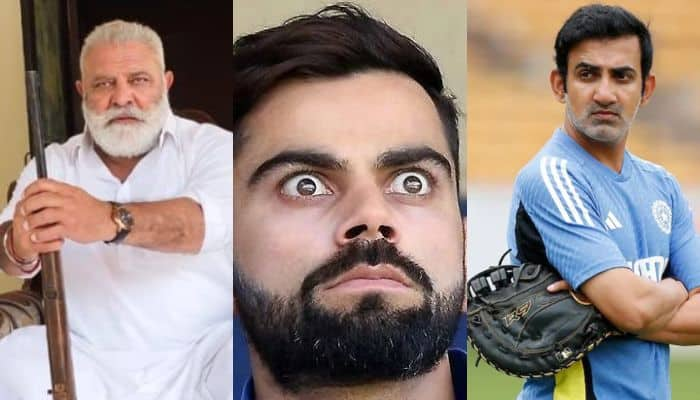 |
|
The recent 3-1 defeat of the Indian cricket team in the Border-Gavaskar Trophy against Australia has sparked considerable debate and analysis. One prominent voice offering commentary is Yograj Singh, former cricketer and father of Yuvraj Singh. His assessment focuses heavily on the technical and mental shortcomings within the Indian team, particularly highlighting Virat Kohli's persistent vulnerability to deliveries outside the off-stump. This vulnerability, manifested in eight dismissals across the five Tests, underscores a need for immediate corrective action, both technical and psychological.
Yograj Singh's critique extends beyond the purely technical aspects of Kohli's batting. He emphasizes the crucial role of man-management within the team's overall strategy. He argues that players of Kohli's stature, and indeed Rohit Sharma's, require a more nuanced approach than conventional coaching. Their mental fortitude and emotional well-being are paramount to their success. Simply addressing technical flaws is insufficient; building confidence and providing reassurance are equally, if not more, important. The essence of his argument rests on the understanding that even the greatest players experience slumps, and overcoming these requires a supportive and understanding environment.
The spotlight then turns to Gautam Gambhir, India's new head coach, whom Yograj Singh believes holds the key to unlocking the team's potential. He praises Gambhir's sharp cricketing mind and his willingness to confront mistakes. However, Yograj cautions against a solely critical approach. He highlights the need for Gambhir to cultivate a nurturing environment, especially for younger players. This balanced approach—a blend of constructive criticism and encouragement—is deemed essential for both seasoned players like Kohli and Rohit, and those still developing their skills, such as Mohammed Siraj. The implication is that a purely results-oriented approach will not lead to sustainable success; fostering a supportive environment is a necessary pre-requisite.
The series loss to Australia represents a significant setback for India's aspirations of reaching the 2025 World Test Championship final. This defeat serves as a stark reminder of the challenges facing the Indian team. While technical adjustments are undeniably crucial, especially for Kohli's off-stump weakness, Yograj Singh's analysis underscores the importance of the psychological aspect of the game. The focus should not simply be on correcting technical flaws but also on rebuilding players' confidence and fostering a cohesive, supportive team environment.
The debate surrounding Kohli's performance and the role of the coaching staff inevitably touches upon broader issues within Indian cricket. Questions about player selection, training regimes, and the balance between individual brilliance and team cohesion are brought into sharp relief. Yograj Singh's emphasis on man-management adds a new layer to this discussion. It suggests that a successful team requires more than technical expertise; it necessitates an astute understanding of individual players' psychological needs and the art of building a team spirit capable of overcoming adversity.
Yograj Singh's insights, though coming from a single perspective, provide a valuable framework for understanding the complexities of high-level cricket. His emphasis on man-management and Gambhir's crucial role suggest that the future success of the Indian cricket team rests not solely on technical adjustments and tactical innovations, but on cultivating a supportive and psychologically astute coaching environment. The team's performance in future matches will undoubtedly be a test of whether these recommendations are effectively implemented and their impact assessed.
Source: Yograj Singh Has Solution For Virat Kohli's 4th Stump Problem And It Involves Gautam Gambhir
